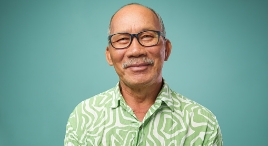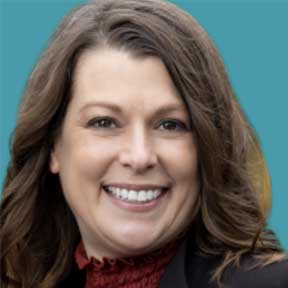Back to School Mental Health Tips for Parents and Kids
As the summer days wind down and the school year approaches, families across the country are preparing for the return to routines, early mornings, packed lunches, and backpacks filled with books and expectations. For many, back-to-school season is exciting—but for others, it’s a time of anxiety, stress, and emotional upheaval.
Whether your child is starting kindergarten, entering middle school, or returning to high school, mental and emotional wellness should be part of your back-to-school checklist. The truth is, children and teens today face more mental health challenges than ever before—from academic pressure to social media stress to the lingering effects of the pandemic. As parents and caregivers, your support and awareness can make a world of difference.
Here are practical and compassionate mental health tips to help you and your child feel more grounded, supported, and ready to take on the school year.
1. Normalize Conversations About Emotions
Make mental health part of everyday conversation. Ask your child open-ended questions like:
- “What made you feel proud today?”
- “What was something that made you feel nervous or upset?”
- “What’s something you’re looking forward to?”
Creating a safe and judgment-free space for kids to talk about their feelings helps them develop emotional awareness and self-confidence. When your child knows they can come to you with any emotion—good or bad—they’re more likely to share struggles before they escalate.
Tip for parents: Don’t rush to “fix” the problem right away. Sometimes the best response is simply listening and validating their feelings.
2. Reestablish Routines Early
Transitions can be tough for kids—and inconsistent routines can cause stress, sleep disruption, and behavioral challenges.
- Start adjusting bedtime and wake-up times 1–2 weeks before school starts.
- Reintroduce structured mealtimes and reduce screen time in the evenings.
- Establish consistent morning and after-school routines to create a sense of stability.
Predictability reduces anxiety. The more your child knows what to expect, the more secure and in control they’ll feel.
3. Watch for Signs of Stress or Anxiety
Some children talk openly about their worries. Others express stress through changes in behavior. Be on the lookout for signs such as:
- Sleep issues or nightmares
- Physical symptoms like stomachaches or headaches
- Avoidance (e.g., not wanting to go to school or join activities)
- Irritability, anger, or tearfulness
- Withdrawing from friends or family
If you notice these signs, don’t brush them off as “just nerves.” Gently ask what’s going on, offer your support, and if needed, connect with your school counselor or a mental health professional.
4. Prioritize Sleep
Sleep is one of the most powerful tools for emotional regulation, focus, and resilience. Yet, many school-age children and teens don’t get enough of it.
Recommended sleep times:
- Ages 6–12: 9–12 hours per night
- Ages 13–18: 8–10 hours per night
Tips for healthy sleep:
- Keep screens out of the bedroom
- Set a consistent bedtime and wind-down routine
- Create a calming sleep environment (dim lighting, no caffeine or sugar before bed)
A well-rested brain is better equipped to manage stress, make good decisions, and engage in learning.
5. Encourage Healthy Coping Strategies
Kids of all ages benefit from learning simple ways to calm their minds and bodies. Introduce techniques such as:
- Deep breathing: Try “box breathing” (inhale 4, hold 4, exhale 4, hold 4)
- Movement: Physical activity releases stress and boosts mood
- Creative outlets: Journaling, drawing, music, or crafting
- Mindfulness: Practicing being present with all five senses
Even five minutes of a healthy coping practice can shift a child’s mood or reset a tough day.
6. Model Healthy Stress Management
Children learn how to handle stress by watching the adults in their lives. If you’re constantly overwhelmed or irritable, they pick up on that—even if you try to hide it.
Be open about your own stress and how you manage it:
“I had a hard day today, so I’m going for a walk to clear my head.”
This models emotional awareness, self-care, and resilience. It also gives kids permission to take care of their own mental health.
7. Balance Schoolwork With Play and Downtime
Kids need time to rest, play, and just be kids. A schedule packed with homework, sports, and extracurriculars can lead to burnout and anxiety.
- Limit overscheduling—leave room for free play and unstructured time
- Support hobbies or interests that are not performance-based
- Let your child know it’s okay to take breaks and say “no” sometimes
Rest is not laziness—it’s essential to mental and emotional health.
8. Be a Bridge Between Home and School
Stay connected with your child’s teachers, school counselor, or support staff. They’re your partners in supporting your child’s well-being.
- Attend back-to-school nights and parent-teacher conferences
- Don’t hesitate to reach out if you notice behavior changes or challenges at home
- Encourage your child to build relationships with trusted adults at school
Knowing there’s a team of caring adults looking out for them can ease school-related anxiety and foster a sense of safety.
9. Limit Social Media and Monitor Online Activity
For older kids and teens, social media can be a major source of anxiety, comparison, and distraction. Set clear boundaries and talk openly about healthy use.
- Encourage device-free times (meals, bedtime, family time)
- Use parental controls when appropriate
- Talk about digital wellness—what to share, how to handle cyberbullying, and how to recognize when screen time is negatively affecting mood
Support your child in building real-world connections and offline activities that bring joy and meaning.
10. Know When to Ask for Help
Despite your best efforts, there may be times when your child needs additional mental health support. If struggles persist, worsen, or interfere with daily life, it’s okay—and courageous—to seek professional help.
Reach out to:
- Your child’s school counselor or social worker
- Your pediatrician or family doctor
- A licensed mental health professional in your community
Early intervention can prevent small problems from becoming bigger ones. Getting help is not a sign of failure—it’s a powerful act of care.
A Final Word for Parents
As you prepare backpacks and sharpen pencils, take a moment to check in with yourself too.
Back-to-school season isn’t just stressful for kids—it’s a major transition for parents and caregivers as well. You may be juggling new routines, work responsibilities, financial stress, or your own emotional reactions to your child’s growing independence.
Make space for your own mental health:
- Build in quiet moments during your day
- Connect with other parents or your support network
- Give yourself grace—no one gets it right all the time
A calm and centered parent is one of the most powerful protective factors in a child’s life.
You’re Not Alone
This school year, remember that you don’t have to do it all by yourself. Support is out there—within schools, in communities, through mental health resources, and by simply opening the door to conversations that matter.
Let’s start the year with kindness, connection, and care—for our kids, and for ourselves.















